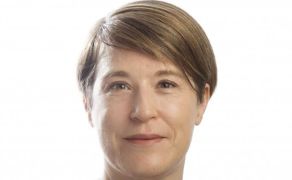£500m fund aims to increase safe hospital discharge
Expanding on briefings to the media overnight, which focused on measures to boost access to primary care, the health secretary insisted she would champion patients’ priorities.
Dr Coffey (pictured), who is also deputy prime minister, published Our plan for patients – the government’s approach to health and social care over this winter and next. The plan outlined a £500m adult social care discharge fund to support appropriate discharge of patients into the community and bolster the social care workforce. This would free up hospital beds, she said.
Local health and care systems will be able to use the funding flexibly, the plan said, to target areas facing the greatest challenges and improve their ability to recruit and retain staff. The government will hold local health bodies and local authorities accountable for the use of the funding.
National and international recruitment campaigns will encourage people to join adult social care providers.
Rebalance funding
The discharge fund will be the first step to ‘inform our further action from next year to rebalance funding across health and care, to establish a strong and sustainable social care sector with greater accountability for use of taxpayers’ money’, it added.
During the Conservative leadership campaign this summer, prime minister Liz Truss suggested that social care would receive a greater proportion of the funding currently raised through the health and care levy.
NHS Providers said the health service would seek assurances that the funding would not be taken from hard-pressed NHS budgets, and that social care needed a long-term, funded plan.
To increase productivity, the plan committed to all trusts in England having electronic patient records by 2025. Data on waiting times by specialty and provider will be made more accessible. Dr Coffey insisted there would be no change to the four-hour A&E target.
The plan added that the NHS would open the equivalent of 7,000 beds, both in physical and virtual wards. It also recommitted the government to the hospital building programme, which it promised to accelerate, as well as a manifesto promise on nursing numbers.
Elements of the NHS pension scheme would be changed to help retain doctors, nurses and other key senior staff. Doctors have reduced their working hours, refused additional sessions, or left the NHS altogether due to pension tax rules. The government measures will include correcting pension rules regarding inflation, encouraging trusts to explore local solutions for senior clinicians, and introducing or extending retirement flexibilities to encourage senior staff to remain in or return to the service.
Integrated care boards will be expected to manage dental contracts proactively and reallocate resources to providers willing to take on more NHS patients. They will be held to account for the provision of dentistry in their areas, and their role in sharing best practice and innovative ways of commissioning and delivering NHS care.
 Sally Warren (pictured), the King’s Fund policy director, said that though it included some sensible measures, the plan amounted to ‘little more than tinkering around the edges’. Bolder action was needed.
Sally Warren (pictured), the King’s Fund policy director, said that though it included some sensible measures, the plan amounted to ‘little more than tinkering around the edges’. Bolder action was needed.
The new discharge fund would take some pressure off hospitals, but was little more than a reinstatement of the discharge to assess scheme, which was scrapped in March after supporting safe discharge during Covid.
‘A short-term, short-notice pot of cash is not going to help social care services to address unmet need, improve quality of care, or recruit and retain more staff. Social care providers are carrying approximately 165,000 vacancies, and analysis by The King’s Fund shows that nearly 400,000 care workers would be better paid working in most supermarkets,’ she said.
Staff shortages were the most significant reason why people found it difficult to access care. ‘Addressing the staffing crisis will require a comprehensive, long term workforce strategy, and I hope the government comes good on its commitment to deliver one this autumn.’
Earlier this week, a report from the Academy of Medical Royal Colleges (AOMRC) said the NHS was on a crisis footing, and warned against normalising unacceptable health and care provision. The AOMRC called for honesty when assessing the extent of the problems facing the NHS and the impact of the solutions.
It called for a range of changes, including an expansion of the workforce, reform of social care, modernisation of the NHS estate, the revitalisation of primary care, a greater focus on prevention, and adequate investment as well as better use of resources.
Related content
The value masterclass shares examples of organisations and systems that have pursued a value-driven approach and the results they have achieved.
This webinar series offers colleagues of ICS organisations the opportunity to discuss common priorities, challenges, and successes within their field.